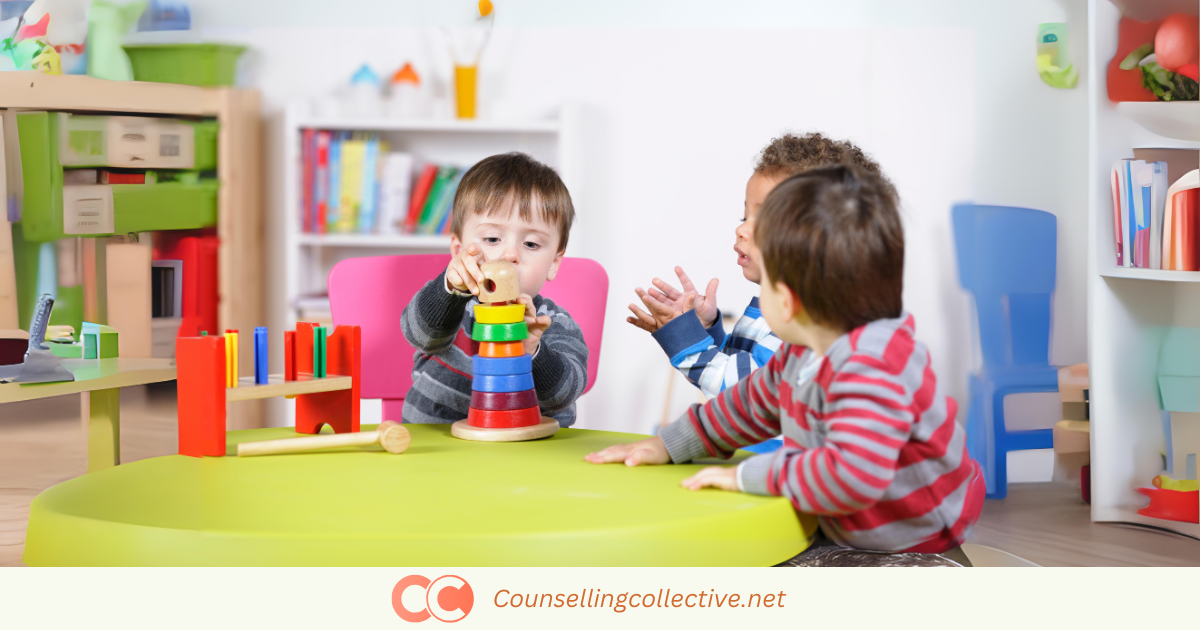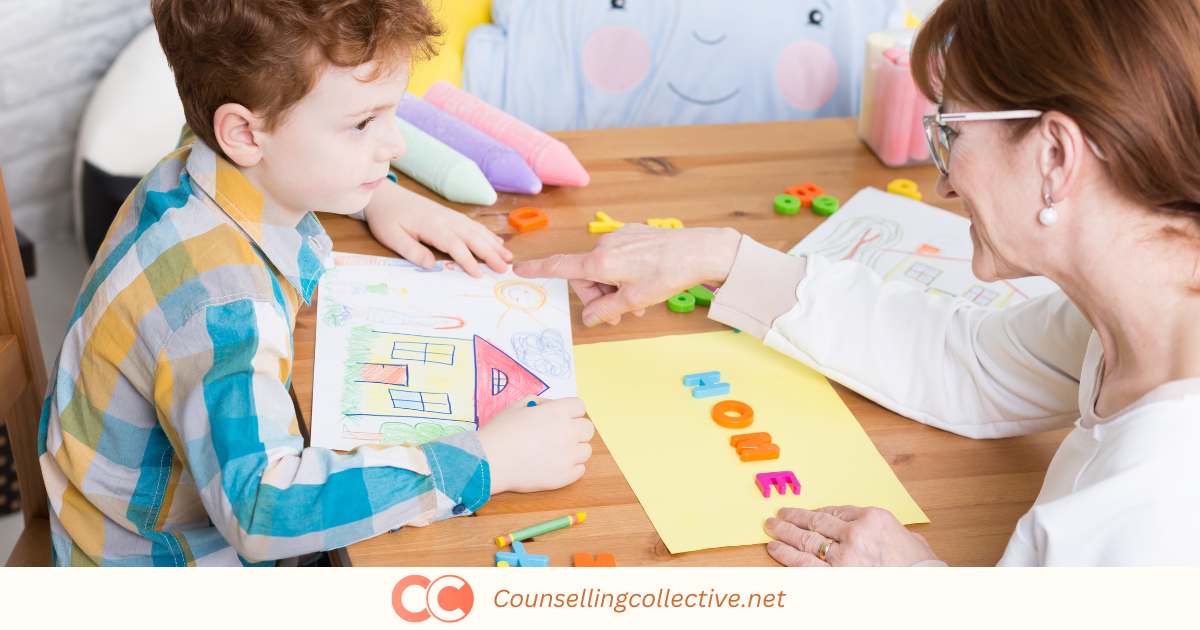Contents
Introduction

Pharmacotherapy (Medication Management): Techniques, Applications, and Effectiveness
Pharmacotherapy, or medication management, involves using medications to treat mental health disorders, alleviate symptoms, and improve overall functioning. It is a crucial component of comprehensive mental health care, particularly for conditions such as depression, anxiety disorders, bipolar disorder, and schizophrenia. Developed and refined over decades, pharmacotherapy aims to address chemical imbalances in the brain and support the therapeutic process alongside other treatment modalities like psychotherapy.
This article explore into the core principles of pharmacotherapy, explores its applications for various mental health conditions, and evaluates its effectiveness, potential side effects, and common criticisms. It provides a comprehensive overview of how pharmacotherapy is utilized to manage and treat different disorders, offering insights into both its benefits and limitations.
What is Pharmacotherapy (Medication Management)?
Pharmacotherapy is the use of medications to manage and treat mental health conditions. It involves prescribing and monitoring drugs that influence neurotransmitter systems in the brain to alleviate symptoms and improve mental health. Medications are typically categorized based on their intended effects and the conditions they target. Common classes include antidepressants, antianxieties, mood stabilizers, and antipsychotics. The goal of pharmacotherapy is to balance neurotransmitter levels, reduce symptoms, and enhance the overall quality of life for individuals with mental health disorders. The development of pharmacotherapy as a field has been driven by contributions from various researchers and clinicians over time, including early pioneers like Emil Kraepelin and modern researchers who have advanced drug development and personalized treatment approaches..
Why is Pharmacotherapy Important?
Pharmacotherapy is essential because it offers a direct way to manage symptoms associated with various mental health disorders. For many individuals, medication can provide significant relief from symptoms that impact daily functioning and overall well-being. Medications can help stabilize mood, reduce anxiety, and alleviate symptoms of psychosis, making it easier for individuals to engage in therapy and other forms of treatment. This approach is especially crucial for conditions that involve severe symptoms or biological components that may not be fully addressed through psychotherapy alone.
Pharmacotherapy operates on the premise that mental health disorders often have a biological basis involving neurotransmitter imbalances. By using medications to correct these imbalances, pharmacotherapy aims to relieve symptoms and restore functioning. It is often used in conjunction with psychotherapy to provide a comprehensive approach to treatment.
Understanding How Pharmacotherapy Works
Pharmacotherapy involves using medications to manage or treat mental health disorders. It works by altering brain chemistry to affect mood, thoughts, and behavior. Medications can target neurotransmitters, such as serotonin or dopamine, to balance brain function. Different classes of drugs, like antidepressants, antipsychotics, and anxiolytics, are prescribed based on the specific condition. Efficacy varies among individuals, and side effects can occur. Monitoring and adjusting dosages are essential for effectiveness and safety.
Simple Overview
Pharmacology research plays a important role in advancing personalized medicine. Within pharmacology, various sub-specialties exist. Pharmacodynamics, for instance, focuses on how drugs impact biological systems. It examines the chemical properties of drugs and their physiological and behavioral effects by interacting with molecular targets like receptor proteins or enzyme systems.
Real-Life Example: A person with depression might be prescribed an SSRI like fluoxetine. This medication increases serotonin levels in the brain, which can help lift mood and reduce feelings of sadness. In conjunction with therapy, this approach can significantly enhance the individual’s ability to cope with depression and engage in daily activities.
Critical Concepts
- Neurotransmitter Modulation: Involves altering neurotransmitter activity to address imbalances linked with mental health disorders. Medications aim to correct these imbalances, thereby alleviating symptoms and improving overall mental functioning by restoring normal neurotransmitter levels. This approach can be tailored to target specific neurotransmitters, such as serotonin or dopamine, depending on the condition.
- Side Effects Management: Entails managing potential side effects of medications, including monitoring for adverse reactions, adjusting dosages, or switching drugs as needed. This process helps minimize negative effects while maximizing the therapeutic benefits of the medication. Effective management also involves educating patients about potential side effects and maintaining open communication with healthcare providers.
- Adherence and Monitoring: Ensures successful pharmacotherapy through strict adherence to prescribed medication regimens and regular follow-up with healthcare providers. This practice helps assess effectiveness, manage side effects, and make necessary adjustments to optimize treatment outcomes. Regular monitoring also involves assessing patient progress and ensuring that the treatment aligns with individual needs and health goals.
- Combination Therapy: Utilizes medications in conjunction with psychotherapy and other treatment modalities. This integrative approach can enhance overall treatment effectiveness by addressing both biological and psychological aspects of mental health disorders, leading to more comprehensive care. Combining treatments also allows for a more personalized approach, catering to the unique needs of each patient.
Who Can Prescribe Medicine?
Psychiatrists, who are licensed medical doctors (MDs or DOs), are authorized to prescribe medications due to their extensive training in both medicine and mental health. Their education includes completing medical school, followed by a residency in psychiatry, which equips them with a deep understanding of pharmacology and the effects of medications on mental and physical health. This training allows psychiatrists to diagnose complex mental health conditions and prescribe appropriate medications as part of a comprehensive treatment plan. They carefully consider the potential benefits and side effects of medications, tailoring prescriptions to each patient’s needs.
In addition to prescribing, psychiatrists monitor patients’ responses to medication, adjusting dosages and treatments as necessary to optimize outcomes and minimize adverse effects. This ongoing assessment is crucial for effective mental health management.
How Does Psychiatrists and Pyschotherapist work in combination fro client?
Psychiatrists and psychotherapists often work together to provide comprehensive care for clients, addressing both medical and psychological aspects of mental health:
- Integrated Treatment Plans: Psychiatrists typically focus on diagnosing and treating mental health disorders with medication when necessary. They assess how medications can help manage symptoms and improve overall functioning. Psychotherapists, on the other hand, provide various forms of talk therapy to help clients address underlying issues, develop coping strategies, and improve emotional well-being. Together, they create an integrated treatment plan that combines medication management with therapeutic interventions.
- Collaborative Approach: Effective collaboration involves regular communication between the psychiatrist and psychotherapist. They may discuss the client’s progress, medication effects, and therapeutic goals to ensure that the treatment plan is cohesive and responsive to the client’s evolving needs. This teamwork helps in adjusting treatments based on the client’s responses and any emerging issues.
- Holistic Care: By working in tandem, psychiatrists and psychotherapists offer a holistic approach to mental health care. Psychiatrists address biological and chemical imbalances with medications, while psychotherapists explore emotional and psychological factors through therapy. This comprehensive approach maximizes the benefits of both treatment modalities and supports the client’s overall mental health and recovery.
Notable Figures in Pharmacotherapy
Joseph H. Brady: A pioneer in psychopharmacology, Brady’s research focused on the effects of drugs on mental health, particularly anxiety and depression. His groundbreaking work laid the foundation for modern pharmacotherapy approaches and influenced the development of therapeutic strategies.
A. John Rush: Renowned for his extensive research on antidepressants, Rush has significantly contributed to understanding the effectiveness of various medications for treating depression. His work has shaped treatment guidelines and practices in pharmacotherapy, enhancing clinical approaches.
David M. Barlow: Notable for his work on anxiety disorders, Barlow has contributed to developing pharmacotherapy strategies for managing anxiety and related conditions. His research has influenced treatment protocols and the integration of pharmacotherapy in anxiety management.
David M. Barlow- Image Source: bu.edu

Applications of Pharmacotherapy in Treating Mental Health Disorders
Pharmacotherapy for depression often uses antidepressants such as selective serotonin reuptake inhibitors (SSRIs) and serotonin-norepinephrine reuptake inhibitors (SNRIs). These medications work by increasing levels of neurotransmitters like serotonin and norepinephrine in the brain.
Example: A patient with major depressive disorder might be prescribed sertraline, an SSRI, to increase serotonin levels and alleviate symptoms. In addition to medication, they might engage in cognitive techniques to challenge negative thoughts, participate in physical exercise to boost mood, and use therapeutic methods to address underlying emotional issues.
Image Source: mantracare.org

Depression

Anxiety Disorders
Utilizes anxiolytics, often benzodiazepines, to reduce anxiety symptoms by enhancing neurotransmitters like gamma-aminobutyric acid (GABA), and sometimes antidepressants to address chronic anxiety.
Example: A person with generalized anxiety disorder might be prescribed diazepam, a benzodiazepine, for short-term relief of anxiety symptoms. They might also use cognitive-behavioral techniques to manage irrational thoughts, engage in relaxation exercises to reduce physical tension, and practice mindfulness to improve emotional resilience.
Image Source: campustimes.org
Pharmacotherapy employs mood stabilizers such as lithium to manage mood swings and stabilize emotions in individuals with bipolar disorder. These medications help regulate the intense emotional highs (mania) and lows (depression) characteristic of the disorder.
Example: A patient with bipolar I disorder might be prescribed lithium to stabilize mood swings and prevent manic and depressive episodes. Alongside medication, they might use cognitive techniques to monitor mood changes, engage in emotional processing to address underlying issues, and develop coping strategies to maintain emotional balance.
Image Source: manhattanmentalhealthcounseling.com

Bipolar Disorder

Schizophrenia
Uses antipsychotic medications, including both typical and atypical types, to manage symptoms like delusions and hallucinations by altering neurotransmitter activity.
Example: An individual with schizophrenia might be prescribed risperidone, an atypical antipsychotic, to manage symptoms of psychosis. In addition to medication, they might engage in cognitive-behavioral techniques to address distorted thinking, participate in social skills training, and develop strategies to cope with daily challenges.
Image Source: mindsitenews.org
Common Myths About Pharmacotherapy
| Myth | Clarification |
| Medication is a cure-all for mental health disorders. | Medications are part of a comprehensive treatment plan and work best when combined with psychotherapy and lifestyle changes. They manage symptoms but do not cure the underlying disorder. |
| All medications have severe side effects. | While medications can have side effects, not everyone experiences them. Side effects can often be managed with proper monitoring and adjustments to treatment. |
| Medications are addictive. | Not all medications used in pharmacotherapy are addictive. For example, antidepressants and mood stabilizers are generally not considered addictive. |
| Medication is a long-term commitment with no end. | The duration of medication use varies by individual and condition. Some may use medications long-term, while others may taper off as symptoms improve. |
Conclusion
Pharmacotherapy plays a crucial role in the management of mental health disorders by targeting neurotransmitter imbalances and alleviating symptoms associated with various conditions. Although medication alone is not a cure-all, it offers significant relief and can substantially improve the quality of life for many individuals. By addressing biological factors and supporting symptom management, pharmacotherapy helps individuals better engage in their daily lives and in concurrent therapeutic interventions. Understanding the principles of pharmacotherapy—including how medications work, their intended effects, and potential side effects—enables more informed treatment decisions.
References
- Brady, J. H. (1996). Pharmacotherapy for anxiety disorders. In L. T. K. Blazer, & M. T. Jones (Eds.), Handbook of anxiety disorders (pp. 295-312). Cambridge University Press.
- Barlow, D. H. (2002). The nature of panic and anxiety disorders: A biopsychosocial model. Journal of Clinical Psychiatry, 63(suppl 14), 5-10.
- Mayberg, H. S. (2007). Positron emission tomography imaging in depression: A critical review. Journal of Clinical Psychiatry, 68(5), 40-46.
- Rush, A. J. (2007). The importance of early intervention in the treatment of major depression. Journal of Clinical Psychiatry, 68(5), 35-39.
- Muench, J., & Hamer, A. M. (2010). Adherence to treatment with antidepressant medications: A review of the literature and recommendations for clinical practice. Journal of Clinical Psychiatry, 71(2), 95-101.
- Friedman, R. A. (2004). Antidepressant medications and the risk of suicide in children and adolescents. Journal of Clinical Psychiatry, 65(6), 945-950.
- Cameron, A., & Goldman, P. (2005). Mood stabilizers and antipsychotic drugs in the treatment of bipolar disorder. American Journal of Psychiatry, 162(10), 1803-1812.
- Morrison, A. P., & French, P. (2006). Cognitive therapy and pharmacotherapy in the treatment of schizophrenia: A meta-analysis. Psychological Medicine, 36(6), 851-863.
- Kahn, R. S., & Sommer, I. E. (2015). The role of antipsychotic medications in schizophrenia treatment. Lancet Psychiatry, 2(10), 888-899.
- Wilkins, C. H., & Taylor, D. (2007). Side effects of psychotropic medications: A clinical guide. Current Psychiatry Reports, 9(4), 290-295.
Explore more Theories & Therapies








